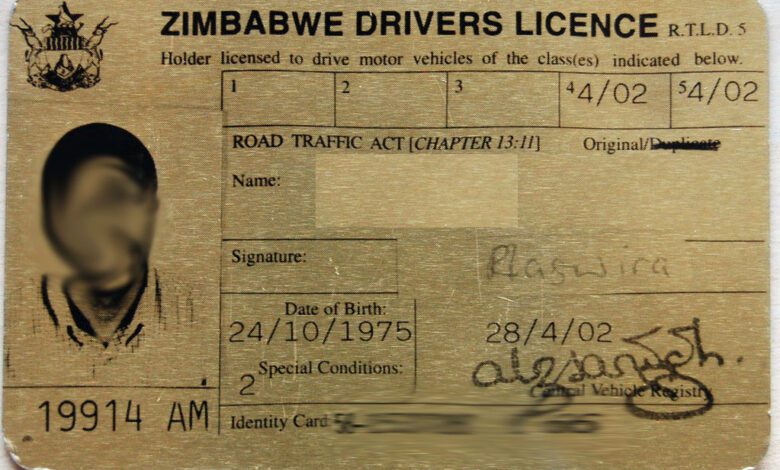Antiquated machinery worsens driver’s licence backlog

The machine that produces metal drivers’ licences is antiquated and failing to meet demand, as it is more than 40 years old, while some chemicals needed for production are in short supply locally, a government official has said.
This situation has contributed to a serious backlog of metal drivers’ licence discs in Zimbabwe, as some drivers have had to wait two to three years before receiving their licences and are forced to carry around paper documentation, which they cannot use while travelling out of the country.
Those who have managed to receive their metal drivers’ licenses earlier from the Vehicle Inspection Department (VID) offices are accused of doing so corruptly, to the detriment of those who are diligently waiting for theirs.
“There are some people that acquired provisional licences in 2019 and to date, they have not received their metal licences. Some have torn paper driver’s licence of competence and some of these have been obliterated,” said Senator Chief Ndlovu at the Senate last Thursday.
“When people go to their local offices, they are told that they should come to Harare. When they come to Harare, they are told that the licences have not been processed and they go back. What is causing this delay? Why are drivers’ licences produced after five years after a road test?”
In response, Minister of Transport and Infrastructure Development, Felix Mhona, admitted the delivery of metal drivers’ licenses was challenging but would be addressed.
“When we go back to the production of the metal discs, the machines that produce licences have been in existence for more than 40 years and they are no longer coping with demand. Some of the chemicals that are required to produce that particular licence are imported and at times we would not be having adequate foreign currency to be able to produce,” he said.
The minister claimed new licenses were being produced from 2018, which would continue until 2023 while addressing the issue of backlog.
He added that the ministry was also working on coming up with a standard driver’s licence that would be accepted in the SADC region.
“My ministry is busy making sure that the Zimbabwean driver, once he gets into Malawi, Zambia and Mozambique, when they produce their driver’s licence, it is recognised. I believe that by the end of the year, we will have produced a recognisable driver’s license which is recognised,” Mhona claimed.
“I believe that by the end of the year, we will have produced a driver’s licence which is recognised in the SADC region. It will also enable us to look into this issue and come up with solutions.”
The minister, however, noted there were some corrupt activities taking place at the VID, which affected the delivery of licences to holders.
“It is true that others are corruptly getting these licences as you have said. Of course, we are fighting against corruption. Others are told that licences cannot be made available but those who pay bribes can have their licences. This is corruption and cancer that we are fighting,” Mhona said.
“We do not want people to be doing that. It is true that those with paper licences, when they go into other countries, are inconvenienced. We are moving towards the era where we have acceptable licences. These are not paper licences and are not prone to forgery.
“It is true, a lot of people have suffered by not accessing the metal discs. It is the Government’s vision that we should, as quickly as possible, make sure that all drivers have their metal licence discs.”
The minister also claimed his ministry was committed to fighting corruption within the VID.
“So, we would want to know the people who are doing that so that we can fight corruption. Those with licences from 2018 to 2019 should be in a position to access their licences without being corruptly asked to offer a bribe,” Mhona said.
“I will also be in a position to go and research so as to find out if this is what is happening. Those that are in the bracket that I have mentioned should be in a position to receive metal driver’s licences. We are going to deal with part of the 2020 licences. I believe once we are done with our research on the standards that we must follow, we will now move away from producing metal discs. We will start producing licences that are recognised in the SADC region.”






